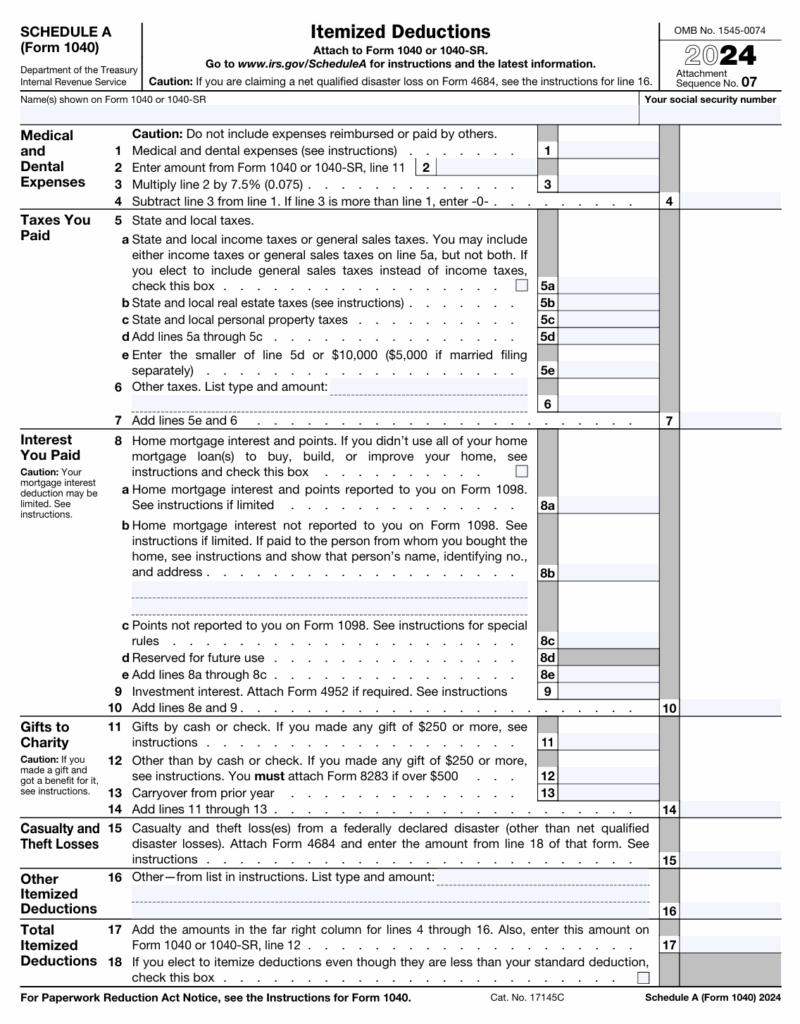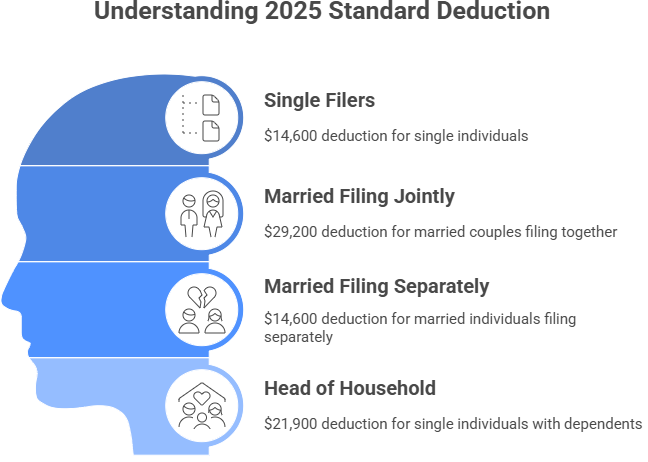Common mistakes taxpayers make when handling the FEIE Standard Deduction
Wiki Article
Comprehending the Foreign Earned Revenue Exclusion and Its Influence on Your Common Reduction
The Foreign Earned Revenue Exemption (FEIE) supplies substantial advantages for expatriates, allowing them to exclude a portion of their foreign-earned earnings from U.S. taxes. Claiming the FEIE can make complex one's tax situation, especially pertaining to the conventional reduction. Recognizing this communication is important for individuals living abroad. As migrants navigate these intricacies, they have to consider how their choices influence their overall tax liability. What techniques can they utilize to enhance their monetary results?What Is the Foreign Earned Income Exclusion (FEIE)?
The Foreign Earned Earnings Exclusion (FEIE) functions as an essential tax benefit for U.S. people and resident aliens functioning abroad. This arrangement allows eligible individuals to leave out a substantial portion of their foreign-earned earnings from U.S. tax, properly lowering their total tax concern. The FEIE aims to minimize the monetary stress on migrants and urges Americans to go after job opportunity in foreign markets. The exclusion puts on incomes, wages, and specialist charges earned while residing in an international country. The maximum exclusion quantity is changed yearly for rising cost of living, guaranteeing that it remains pertinent to present economic conditions. By utilizing the FEIE, expatriates can preserve more of their income, promoting economic stability while living overseas. Overall, the FEIE plays an important duty in forming the financial landscape for Americans abroad, assisting in a smoother shift to global work settings and promoting economic involvement on a worldwide scale.Qualification Demands for the FEIE
Qualification for the Foreign Earned Income Exemption (FEIE) is contingent upon conference specific criteria established by the Irs (IRS) Largely, individuals have to be U.S. people or resident aliens who gain income while living in an international country. To certify, they have to satisfy either key examinations: the Physical Presence Examination or the Bona Fide Home Examination.The Physical Existence Test needs people to be literally present in a foreign nation for at the very least 330 complete days within a 12-month period - FEIE Standard Deduction. On the other hand, the Authentic House Test requires that people develop residency in a foreign country for a continuous period that consists of an entire tax year
Additionally, the earnings needs to be originated from personal services carried out in the international nation. Meeting these needs permits taxpayers to omit a considerable part of their foreign-earned revenue from united state tax, thereby decreasing their general tax obligation obligation.
Exactly how to Declare the FEIE

To begin the procedure, individuals need to gather files that validate their foreign incomes, such as pay stubs, income tax return from international nations, and any type of pertinent employment contracts. It is essential to ensure all revenue declared under the FEIE is gained from international sources and fulfills the required thresholds.
In addition, taxpayers should consider filing due dates and any kind of possible extensions. Declaring the FEIE appropriately not just assists in reducing tax responsibility yet also guarantees conformity with IRS guidelines. Correct documents and adherence to standards are vital for an effective insurance claim of the Foreign Earned Income Exemption.
The Communication In Between FEIE and Typical Deduction
The interaction between the Foreign Earned Earnings Exemption (FEIE) and the standard deduction is a vital element of tax preparation for migrants. Recognizing the standard concepts of FEIE, in addition to the constraints of the standard deduction, can considerably affect tax obligation declaring strategies. This area will certainly check out these components and their implications for taxpayers living abroad.FEIE Basics Explained
While several migrants look for to decrease their tax concern, recognizing the communication between the Foreign Earned Income Exclusion (FEIE) and the conventional deduction is important. The FEIE allows U.S. residents and resident aliens living abroad to omit a specific quantity of international made income from united state tax. This exclusion can greatly lower taxable income, potentially impacting eligibility for various other reductions, such as the typical deduction. Incredibly, people that declare the FEIE can not also take the basic deduction versus the left out revenue. Therefore, expatriates need to thoroughly evaluate their overall income and reductions to optimize their tax obligation situation. Recognition of these interactions can lead to more informed monetary choices and better tax techniques for migrants steering with their one-of-a-kind conditions.Requirement Reduction Limitations
Understanding the restrictions of the basic reduction in relation to the Foreign Earned Revenue Exemption (FEIE) is crucial for expatriates maneuvering their tax obligation obligations. While the FEIE permits qualifying individuals to exclude a certain amount of foreign-earned income from U.S. tax, it can influence the conventional deduction they are qualified to claim. Specifically, taxpayers who assert the FEIE can not also claim the typical deduction on that omitted income. In addition, if an expatriate's overall income drops listed below the standard deduction limit, they might not gain from it at all. This interplay requires mindful preparation to maximize tax obligation benefits, as underutilizing the common reduction can bring about higher taxed earnings and boosted tax obligation responsibility. Recognizing these restrictions is crucial for effective tax technique.Tax Filing Implications
Navigating the tax filing implications of the Foreign Earned Earnings Exemption (FEIE) needs cautious consideration of how it engages with the basic reduction. Taxpayers using the FEIE can exclude a considerable part of their foreign-earned income, but this exclusion affects their qualification for the standard reduction. Especially, if a private cases the FEIE, they can not additionally assert the common reduction for that earnings. This can cause a lower total tax useful site obligation liability yet may make complex the filing procedure. In addition, taxpayers need to ensure compliance with internal revenue service demands when filing Type 2555 for the FEIE. Comprehending these interactions is crucial for maximizing tax benefits while preventing prospective mistakes in the filing process. Careful preparation can take full advantage of advantages and decrease responsibilities.Prospective Tax Effects of Utilizing the FEIE
The Foreign Earned Earnings Exclusion (FEIE) offers substantial tax obligation advantages for united state citizens working abroad, however it also features possible effects that require cautious consideration. One significant effect is the impact on eligibility for sure tax obligation credits and deductions. By choosing to utilize the FEIE, taxpayers might accidentally decrease their modified gross income, which can limit accessibility to credits like the Earned Revenue Tax obligation Credit or minimize the quantity of basic deduction available.
Furthermore, people that make use of the FEIE may deal with difficulties when going back to the U.S. tax system, especially worrying the taxation of future revenue. The exclusion applies only to made revenue, meaning other income kinds, such as dividends or interest, remain taxable. This difference necessitates precise record-keeping to assure conformity. Lastly, the FEIE may impact state tax obligation responsibilities, as some states do not identify the exemption and might exhaust all revenue gained by their citizens, despite where it is gained.
Tips for Maximizing Your Tax Benefits While Abroad
While functioning abroad can be enhancing, it also presents unique chances to enhance tax benefits. To optimize these advantages, individuals must initially determine their qualification for the Foreign Earned Earnings Exemption (FEIE) and consider the physical visibility examination or the bona fide home important site examination. Keeping thorough documents of all income earned and expenditures incurred while abroad is vital. This paperwork sustains claims for credits and reductions.Furthermore, comprehending the tax obligation treaties between the United States and the host nation can aid stay clear of double taxes. Individuals should additionally explore payments to tax-advantaged accounts, such as Individual retirement accounts, which may give additional reductions.

Lastly, consulting a tax specialist concentrating on expatriate tax regulation can provide customized methods and guarantee conformity with both U.S. and foreign tax commitments. By taking these actions, expatriates can efficiently improve their economic scenario while living abroad.
Frequently Asked Questions
Can I Utilize FEIE if I Benefit an International Federal government?
Yes, an individual can utilize the Foreign Earned Income Exclusion (FEIE) while functioning for an international federal government, offered they meet the requisite conditions detailed by the IRS, consisting of the physical visibility or authentic house tests.
Does FEIE Put On Self-Employment Revenue?
The Foreign Earned Earnings Exclusion (FEIE) does relate to self-employment income, gave the individual fulfills the needed requirements. Qualified independent people can exclude certifying income earned while staying in a foreign nation from taxation.What if My Foreign Earnings Exceeds the FEIE Limitation?
The excess amount may be subject to United state taxation if international income exceeds the FEIE limit. Taxpayers need to report and pay tax obligations on the revenue above the exclusion limit while still taking advantage of the exemption.Can I Declare the FEIE and Itemize Deductions?
Yes, individuals can assert the Foreign Earned Revenue Exclusion (FEIE) while also detailing deductions. Nevertheless, they must be conscious that asserting the FEIE might affect the availability of particular go itemized reductions on their tax return.How Does FEIE Influence My State Tax Obligation Responsibilities?
The Foreign Earned Income Exemption can lower state tax commitments, as lots of states follow government guidelines. Specific state policies vary, so it's necessary to get in touch with state tax obligation policies for details ramifications on tax obligation duties.The Foreign Earned Earnings Exemption (FEIE) provides substantial benefits for migrants, allowing them to omit a section of their foreign-earned income from United state tax. While several expatriates look for to decrease their tax obligation burden, recognizing the interaction between the Foreign Earned Revenue Exemption (FEIE) and the basic reduction is essential. Recognizing the limitations of the common reduction in connection to the Foreign Earned Income Exclusion (FEIE) is crucial for expatriates navigating their tax obligations. The exemption uses only to earned revenue, suggesting various other earnings kinds, such as rewards or rate of interest, remain taxable. The Foreign Earned Earnings Exemption (FEIE) does use to self-employment income, supplied the specific fulfills the necessary demands.
Report this wiki page